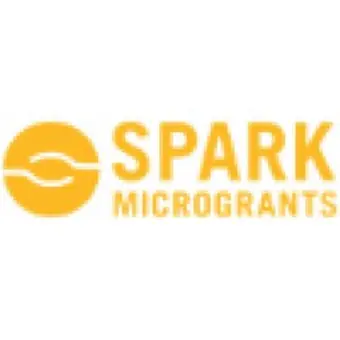Terms of Reference (ToRs)
Spark Microgrants believes in a world where everyone lives with dignity and determines their own positive future. Decades of prescriptive aid have sidelined the poor from the very programs meant to uplift them. We believe in local solutions and catalyzing rural villages facing poverty into action.
At the heart of Spark’s model, the Facilitated Collective Action Process (FCAP), are ‘town-hall’ style weekly meetings, in which women, men, young, old, plan together for their community’s future. Each village elects a leadership committee, establishes a village savings account, and launches a project of their choice. Members receive training on financial management, transparency, leadership, village planning, and advocacy.
Spark trains partner organizations and works with governments to scale the FCAP as the model of choice to advance social and economic development, improve lives, and secure lasting change. Spark is now active in 500+ villages in 6 countries, improving the lives of over 500,000 people.
As a team, we share a set of common values that shape how we work. These are:
- Facilitators. We don’t impose; we enable others to generate impact.
- Community-driven. We are motivated by what is best for the community.
- Process-centered. The how of what we do is just as important as the what.
- Authentic. Our vision and values live in everything we do.
- Dynamic. We seek opportunities and are willing to take risks to serve our community partners better
- Objective: The objective of this consultancy is to conduct a thorough review of Spark Microgrants’ ICT infrastructure, including IT systems, cyber security protocols, and staffing. The consultant will identify gaps and develop a comprehensive strategy for staffing, capacity building, and cyber security enhancement within the organization.
- Scope of Work:
- Review of ICT Infrastructure:
- Assess current IT systems and infrastructure, including hardware, software, and network components.
- Evaluate the effectiveness and efficiency of existing systems.
- Identify outdated or underperforming components and recommend upgrades or replacements.
- Cyber Security Protocols:
- Review existing cyber security measures and protocols.
- Identify vulnerabilities and potential threats.
- Assess the current state of data protection, encryption, and disaster recovery plans.
- ICT Staffing and Capacity:
- Evaluate the current ICT staffing levels and roles.
- Identify skill gaps and training needs among the staff undertaking ICT roles.
- Assess the organizational structure and its effectiveness in supporting ICT functions.
- Development of Strategic Plan:
- Develop a comprehensive strategy to address identified gaps in IT systems, cyber security, capacity and staffing.
- Provide recommendations for capacity building and training programs.
- Propose a timeline and budget for the implementation of the strategy.
- Strategy implementation
- Set up the key components of the strategy including;
- Supporting the hiring for the missing capacity within the organization
- Capacity building of existing and new staff who are/will be running ICT functions
- Setting up cyber security measures
- Undertaking any other activities that are deemed necessary to operationalize the strategy.
- Deliverables:
- Inception Report: A detailed work plan and methodology within the first two weeks of the consultancy.
- Assessment Report: A comprehensive report detailing findings from the review of ICT infrastructure, cyber security protocols, and staffing.
- Strategic Plan: A detailed strategy for addressing identified gaps, including recommendations for upgrades, staffing, training, and budget estimates.
- Final Report: A consolidated report summarizing all activities, findings, and recommendations.
- Work plan: A detailed work plan showing how the consultant will operationalize the strategy for an initial period of 3 months before handing over all the functions to respective Spark staff charged with ICT roles.
- Duration: The consultancy will be implemented in 2 phases each spanning a duration of 3 months. In the first phase, the consultant will run the assessment and develop a comprehensive strategy. In the second phase, the consultant will work with Spark to operationalize the strategy and put in place the required capacity and structures to sustain the ICT function.
- Qualifications and Experience:
- Proven experience in ICT infrastructure assessment and strategy development.
- Extensive knowledge of cyber security protocols and best practices.
- Demonstrated experience in ICT staffing and capacity building.
- Strong analytical and report writing skills.
- Relevant academic qualifications in Information Technology, Computer Science, or related fields.
- Certifications in relevant areas such as CISSP, CISM, or equivalent are desirable.
- Reporting: The consultant will report to Job Ayebale Regular progress updates will be required, and any issues or delays must be communicated promptly.
- Proposal Submission: Interested candidates should submit the following:
- Detailed CV highlighting relevant experience.
- A technical proposal outlining the approach and methodology.
- A financial proposal including the consultant’s fees and any other associated costs by deliverable outlined above.
- Two copies of your most recent similar assignments that you have undertaken
- Application Deadline: Proposals should be submitted by October 1, 2024
All applications should be submitted through the following link: https://sparkmicrogrants.bamboohr.com/careers/119



